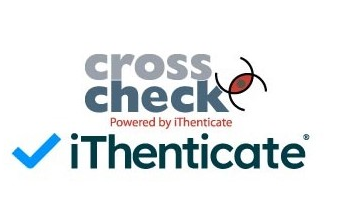Authorship:
Granting authorship is a significant aspect of scholarly publishing, indicating recognition and responsibility for contributions to a research project or manuscript. Authorship is typically bestowed upon individuals who have made substantial intellectual contributions to the conception, design, execution, or interpretation of the study. Moreover, authors are expected to contribute to drafting and revising the manuscript critically for important intellectual content and to approve the final version for publication. It's imperative that authorship decisions adhere to ethical guidelines and reflect genuine contributions, ensuring fairness and transparency within the scholarly community.
Plagiarism Policy:
The Journal of High-Frequency Communication Technologies (JHCT) stands firm in its commitment to maintaining the utmost academic integrity. Our comprehensive anti-plagiarism policy is meticulously crafted to ensure the authenticity and originality of every submitted article. Leveraging cutting-edge iThenticate software, we conduct thorough plagiarism checks on all submissions, providing authors with an iThenticate receipt along with review reports when necessary. In the spirit of transparency, we also encourage authors to conduct their own plagiarism checks before submitting their work.

At JHCT, we place a premium on respecting the intellectual contributions of our peers. We expect authors to adhere to proper quotation and citation practices in all submitted articles. Plagiarism undermines the scholarly discourse we uphold, and any instance identified during the editorial review process will lead to the immediate rejection of the article from our esteemed journal.
1.Similarity Index above 30%: Immediate Rejection
Articles with a similarity index exceeding 30% will be rejected outright due to poor citation and paraphrasing. NO RESUBMISSION will be accepted.
2.Similarity Index between 20%-30%: Authorial Improvement Required
Articles falling within this range may be returned to the author for improvements. Authors are mandated to provide accurate citations to all areas of similarity and enhance paraphrasing, even if citations are already provided.
3.Similarity Index between 20%-30%: Authorial Improvement Required
Articles falling below 20% may be accepted for further publication proceedings, or suggestions for citation improvements may be provided. Proper citations must be included for all externally sourced texts.
In cases 2 and 3, authors are strongly encouraged to diligently revise their articles, incorporating necessary citations and enhancing paraphrasing. Upon resubmission, the iThenticate report should demonstrate NO PLAGIARISM, with a similarity index below 20%. This meticulous approach ensures the publication of only original and ethically crafted research in the Journal of High-Frequency Communication Technologies.
4.Policies on Allegations/Misconduct/Conflicts of Interest:
At the Journal of High-Frequency Communication Technologies, we uphold rigorous standards of integrity and ethical conduct in research. Allegations of misconduct involving reviewers, authors, and editors are treated with the utmost seriousness. Our commitment to maintaining the integrity of scholarly work is unwavering, and any allegations, including plagiarism, data fabrication, and conflicts of interest, are thoroughly investigated following established protocols. We prioritize transparency and accountability in our processes, ensuring that conflicts of potential interest are disclosed and managed appropriately. Upholding these principles strengthens the credibility of our peer review and editorial practices, fostering trust in the scholarly community.